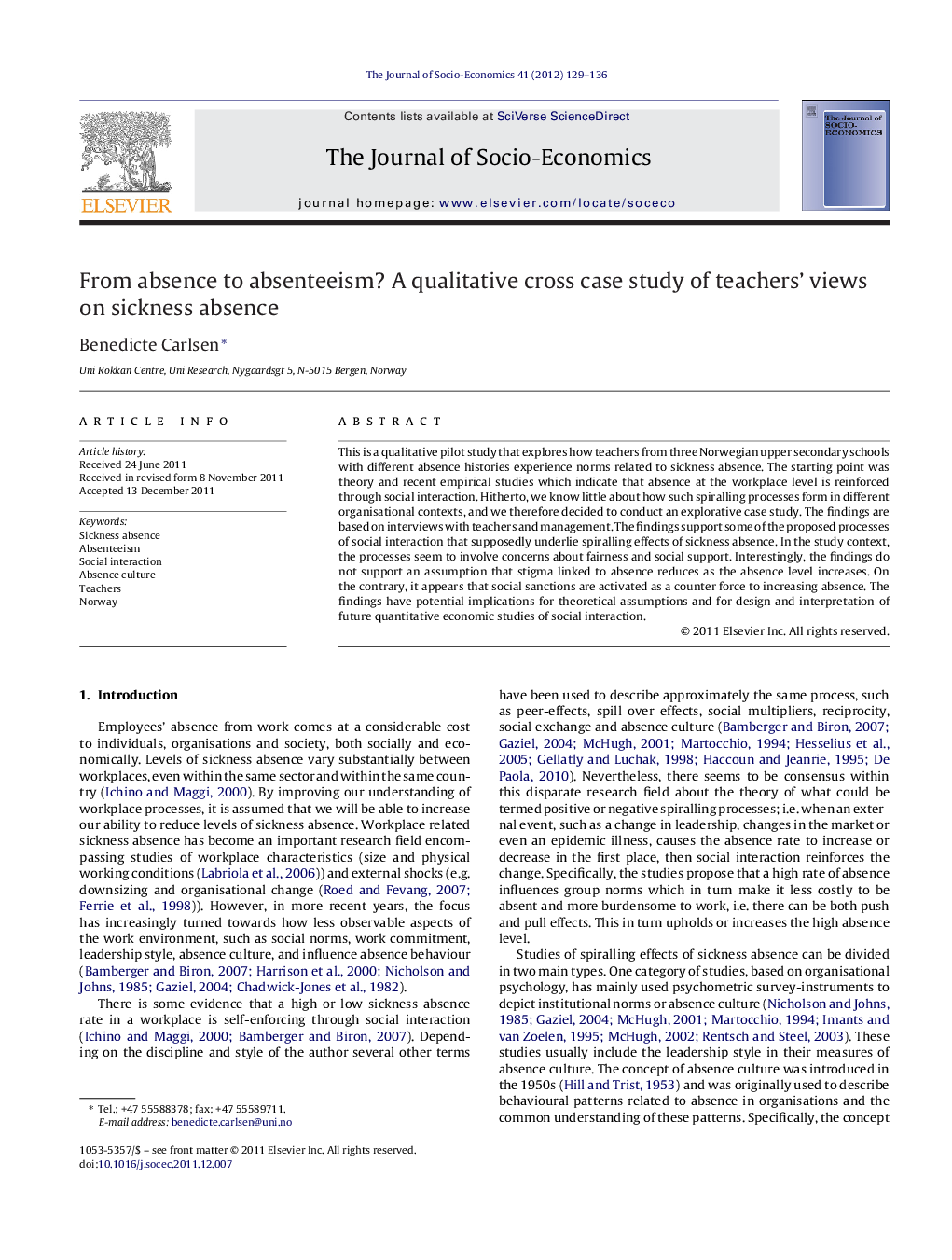| Article ID | Journal | Published Year | Pages | File Type |
|---|---|---|---|---|
| 970033 | The Journal of Socio-Economics | 2012 | 8 Pages |
This is a qualitative pilot study that explores how teachers from three Norwegian upper secondary schools with different absence histories experience norms related to sickness absence. The starting point was theory and recent empirical studies which indicate that absence at the workplace level is reinforced through social interaction. Hitherto, we know little about how such spiralling processes form in different organisational contexts, and we therefore decided to conduct an explorative case study. The findings are based on interviews with teachers and management. The findings support some of the proposed processes of social interaction that supposedly underlie spiralling effects of sickness absence. In the study context, the processes seem to involve concerns about fairness and social support. Interestingly, the findings do not support an assumption that stigma linked to absence reduces as the absence level increases. On the contrary, it appears that social sanctions are activated as a counter force to increasing absence. The findings have potential implications for theoretical assumptions and for design and interpretation of future quantitative economic studies of social interaction.
► Quantitative studies find spiralling processes of absence culture at the workplace. ► This is a qualitative pilot study to elicit teachers’ experience with absence culture. ► The findings suggest context specific, complex and possibly counteracting processes. ► A concern with preserving established norms may counteract increasing absence. ► The findings have implication for current theory about absence culture.
